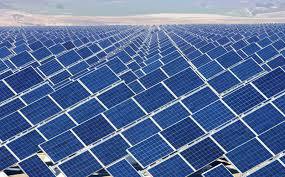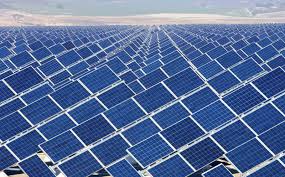
The principle impediment to a more broad selection of photovoltaic in this way, has been expense: sun powered used to be exceptionally costly contrasted with coal or gas, in any case, as indicated by Agora – that as of late authorized a study on the subject to the Fraunhofer Institute for Solar Energy Systems – this is no more genuine.
Solar power – scientists say – because of innovative progressions, is as of now practical in some sunny districts: in Dubai, a long haul force buy contract was marked as of late for 5 pennies every kilowatt hour. Tasks under development in Brazil, Uruguay and different nations are accounted for to create at expenses beneath 7 ct/KWh. By examination, power from new coal and gas-terminated plants costs somewhere around 5 and 10 pennies every kilowatt hour. Furthermore, in Germany, at this time, huge sun powered plants convey power for under 9 pennies, contrasted with as much as 11 pennies from atomic.
By 2025, the report says, the expense of creating power in focal and southern Europe will have declined to somewhere around 4 and 6 pennies every kilowatt hour, and by 2050 to as low as 2 to 4 pennies, making it the least expensive wellspring of vitality in numerous parts of the world. This conjectures appear to repudiate a few different studies which keep up that sun based will give just a little commitment of sun oriented energy to future national, provincial or worldwide force frameworks, something that scientists accept can without much of a stretch be clarified by the utilization of obsolete expense gauges for sun powered photovoltaics.
Later on, they think, the part of sun oriented photovoltaics ought to rather be like that of wind coastal, which is comparatively modest yet so far plays a significantly more conspicuous part in the situations. The expense of force generation is not by any means the only component to consider when making such gauges. In the event that sun oriented vitality gets to be standard or not, it will depend a ton on the monetary motivations to the establishment of sun powered boards made accessible by governments, and by the general administrative systems.
Insufficient administrative administrations could expand expense of force by up to 50 percent through higher expense of money and this may even over compensate the impact of better neighborhood sun oriented assets. Indeed in the most progressive situations, and without considering the likelihood of new mechanical achievements, then again, analysts accept that sun oriented vitality will turn into an alternative.
Solar power – scientists say – because of innovative progressions, is as of now practical in some sunny districts: in Dubai, a long haul force buy contract was marked as of late for 5 pennies every kilowatt hour. Tasks under development in Brazil, Uruguay and different nations are accounted for to create at expenses beneath 7 ct/KWh. By examination, power from new coal and gas-terminated plants costs somewhere around 5 and 10 pennies every kilowatt hour. Furthermore, in Germany, at this time, huge sun powered plants convey power for under 9 pennies, contrasted with as much as 11 pennies from atomic.
By 2025, the report says, the expense of creating power in focal and southern Europe will have declined to somewhere around 4 and 6 pennies every kilowatt hour, and by 2050 to as low as 2 to 4 pennies, making it the least expensive wellspring of vitality in numerous parts of the world. This conjectures appear to repudiate a few different studies which keep up that sun based will give just a little commitment of sun oriented energy to future national, provincial or worldwide force frameworks, something that scientists accept can without much of a stretch be clarified by the utilization of obsolete expense gauges for sun powered photovoltaics.
Later on, they think, the part of sun oriented photovoltaics ought to rather be like that of wind coastal, which is comparatively modest yet so far plays a significantly more conspicuous part in the situations. The expense of force generation is not by any means the only component to consider when making such gauges. In the event that sun oriented vitality gets to be standard or not, it will depend a ton on the monetary motivations to the establishment of sun powered boards made accessible by governments, and by the general administrative systems.
Insufficient administrative administrations could expand expense of force by up to 50 percent through higher expense of money and this may even over compensate the impact of better neighborhood sun oriented assets. Indeed in the most progressive situations, and without considering the likelihood of new mechanical achievements, then again, analysts accept that sun oriented vitality will turn into an alternative.
“Plans for future power supply systems should therefore be revised worldwide,” Dr. Patrick Graichen, Director of the Agora Energiewende, said in an announcement, “Until now, most of them only anticipate a small share of solar power in the mix. In view of the extremely favourable costs, solar power will on the contrary play a prominent role, together with wind energy – also, and most importantly, as a cheap way of contributing to international climate protection.”
There's a "political" (in the wide sense) undertone to this sort of reports, obviously. Following the time when Germany has reported its Energiewende (or “energy transition”), which incorporates the eliminating of every last bit of its atomic plants by 2022 and the lessening of nursery gas discharges by 80 to 95 percent no later than 2050, various articles and studies have gave the idea that appeared to demonstrate a dull side of this new course.
Ref.
http://www.forbes.com/sites/federicoguerrini/2015/03/31/solar-power-to-become-cheapest-source-of-energy-in-many-regions-by-2025-german-experts-say/


 Germany set to become more Solar Power friendly by 2025
Germany set to become more Solar Power friendly by 2025




 Companies
Companies